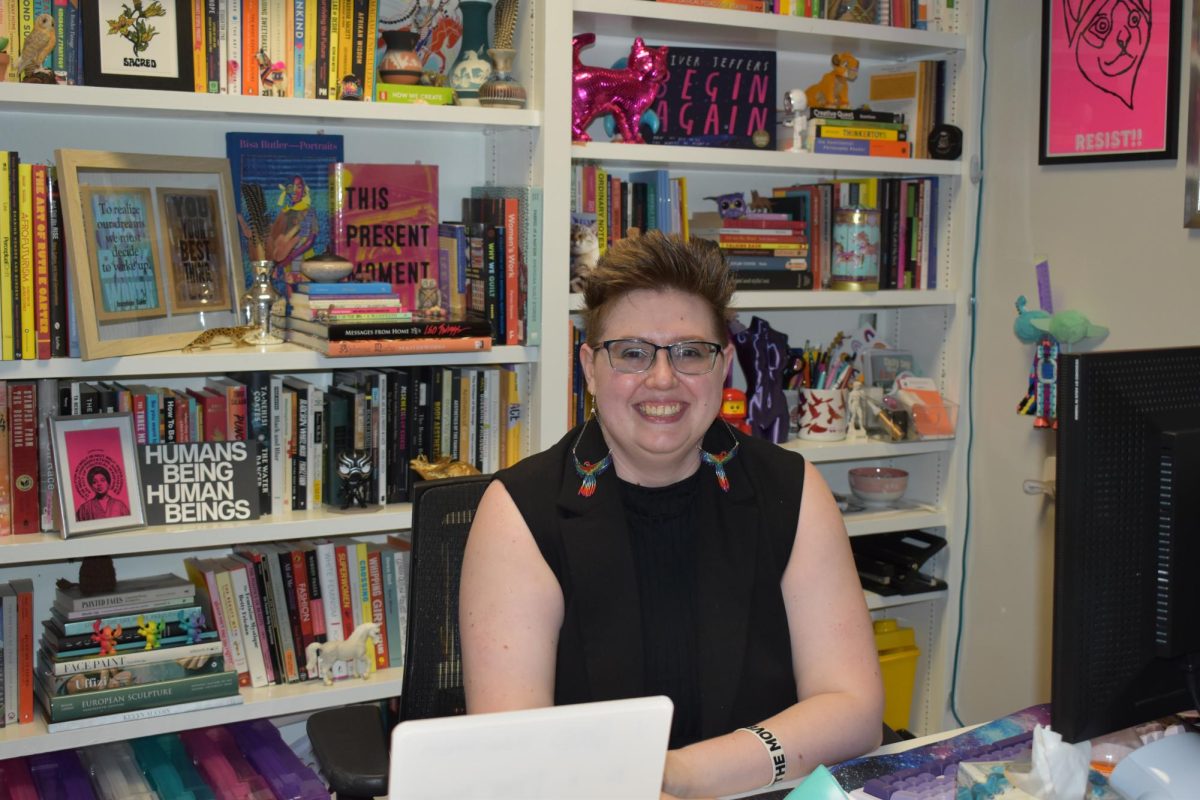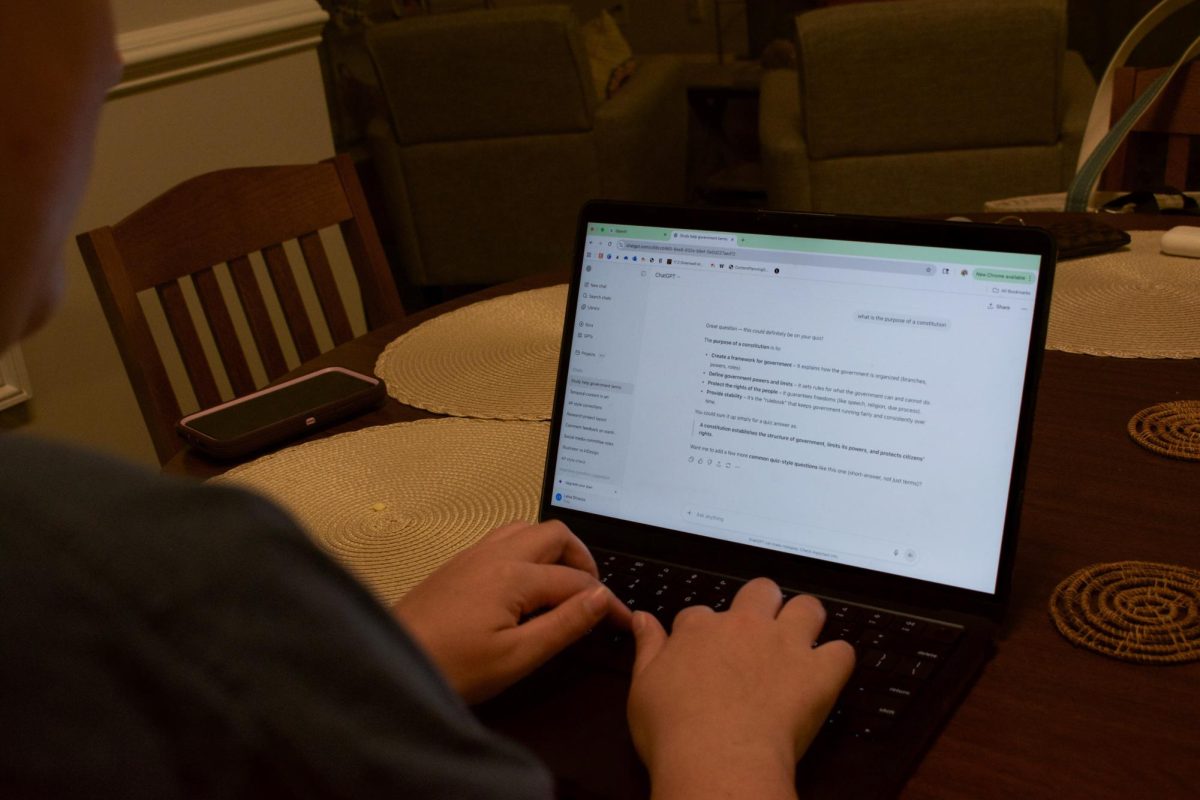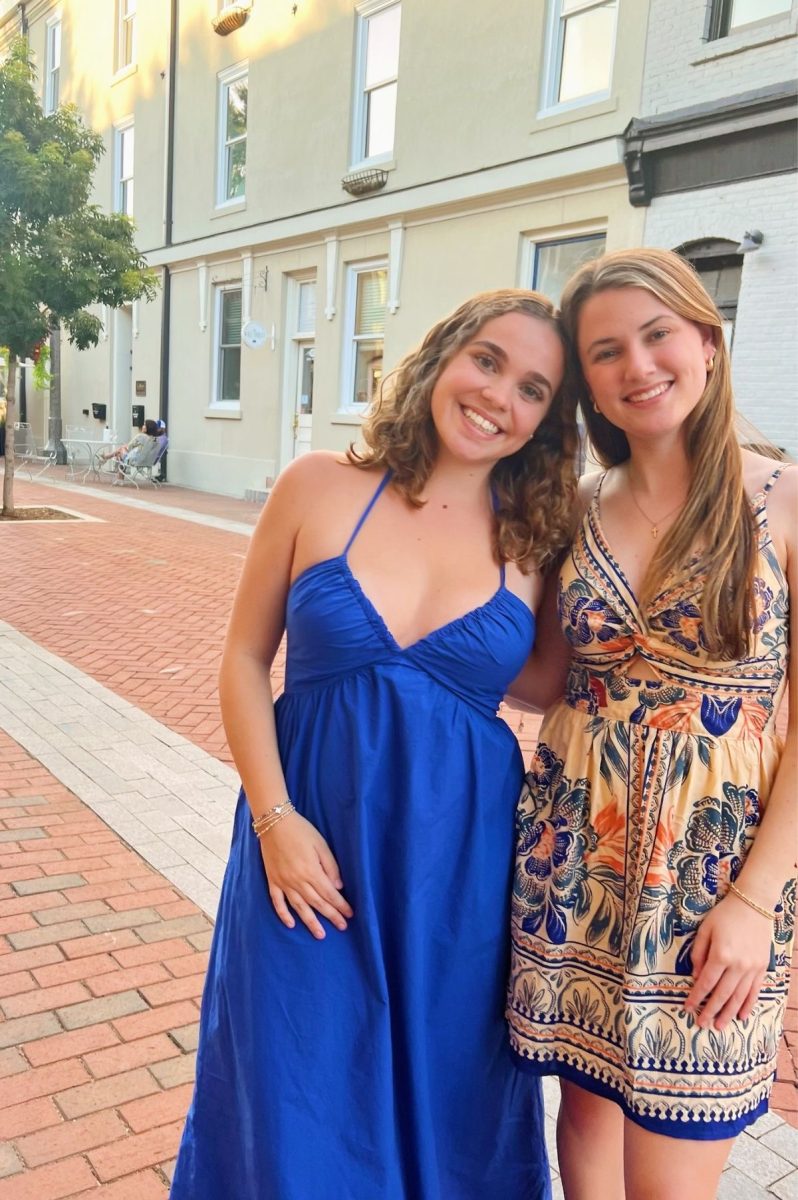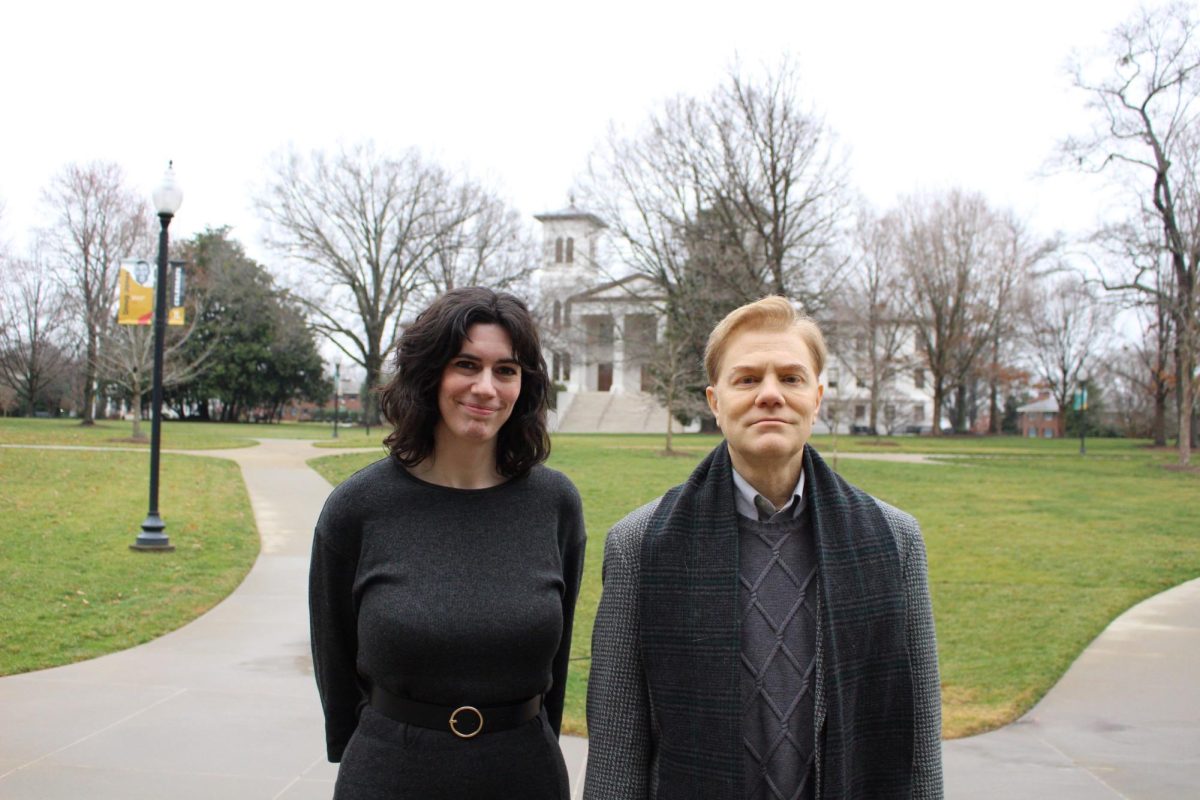Writing a dissertation can be difficult, but writing one while being an adjunct professor can bring even more challenges to the plate. Professor Bailey Szustak is doing just that while teaching various philosophy courses, some that bring a new light to the department.
Szustak is here as a Keller Teaching Fellow, a position that the philosophy department offers to recently graduated or almost graduated philosophy students. This allows students like Szustak to teach a diverse set of classes that they otherwise might not have gotten the opportunity to experience.
Philosophy was not love at first sight for Szustak, in fact, she started out as an art major at Converse University. She needed to take a philosophy of art course to continue in the art major and her life changed. She took her first philosophy course as a freshman, and after that, proceeded to take as many as she could.
“I realized I was much more passionate about writing essays than making my art at that point,” Szustak said.
Szustak had one professor who helped her to realize this dream. She continued to take courses with Kevin Delap, a professor of philosophy at Converse, who she is still in touch with. She continued to take his courses because she appreciated him so much.
One course that Szustak teaches is Philosophy of Neurodiversity. She herself is a neurodiverse individual and believes that neurodiversity is a topic that should be taught so society can better understand ourselves and others. Szustak was interested in teaching the course to better understand her own way of thinking.
“I have learned to understand the way my brain is wired; the patterns of my thinking and the things that get me interested connect with the things that I’m interested in exploring philosophically,” Szustak said.
She thoroughly enjoys finding connections between different areas of philosophy and learning about the minor differences behind them. Traditionally, someone studying philosophy is expected to do a certain kind of research or writing that does not always fit with neurodivergent thinking, and Szustak is interested in looking at it through a different perspective. She believes that neurodivergent thinking needs more of a place in the study of philosophy.
“I’m really interested in exploring … philosophy starting from a neurodivergent perspective and exploring the philosophical implications, while also teaching pedagogical practical implications,” Szustak said.
The subject of her dissertation is the connection between generative artificial intelligence and teaching philosophy and how one should respond to it. Szustak is interested in asking the question of whether or not students should be allowed to utilize AI or should professors teach students how to use it. Another question she is asking is how to engage students in creative thinking along with critical thinking.
“My answer is no. I think we should avoid AI use for lots of reasons, but for philosophy in particular,” Szustak said.
If she hadn’t discovered her love for philosophy, Szustak thinks she would have stuck with the art major or something with linguistics. As someone who is neurodivergent, she has a lot of different interests in a variety of different fields.
“I am interested in a lot of different things, and it depends on the day if you ask me, but I have a background in general women’s studies and disability studies, and other things, like a jack of all trades,” Szustak said.
Szustak knows that she could potentially find something interesting in any subject or field that she could study. Now she knows that she has a brain for philosophy.
Working at Wofford has been a great experience so far for Szustak. While reflecting on her first year at Wofford, she mentioned she has learned a lot.
“My students are having moments where things are clicking, that they’re having these moments or insight or connection or a sort of realization (that’s the best),” Szustak said.
Szustak’s preferred method of teaching is not to give her students something she wants them to do, but rather give them the tools that they can practice with and see what they can do with it. Philosophy is all about different interpretations and nobody’s mind works the same way.
“Getting to see what students have done, there’s been some really amazing stuff and really amazing connections, so it’s sort of an affirmation of the way that I approach teaching and philosophy,” Szustak said.
With this, Szustak knows that she is on the right path and is having a positive impact on her students.
“That’s really all I could ask for,” Szustak said.


































